Story
We made it!
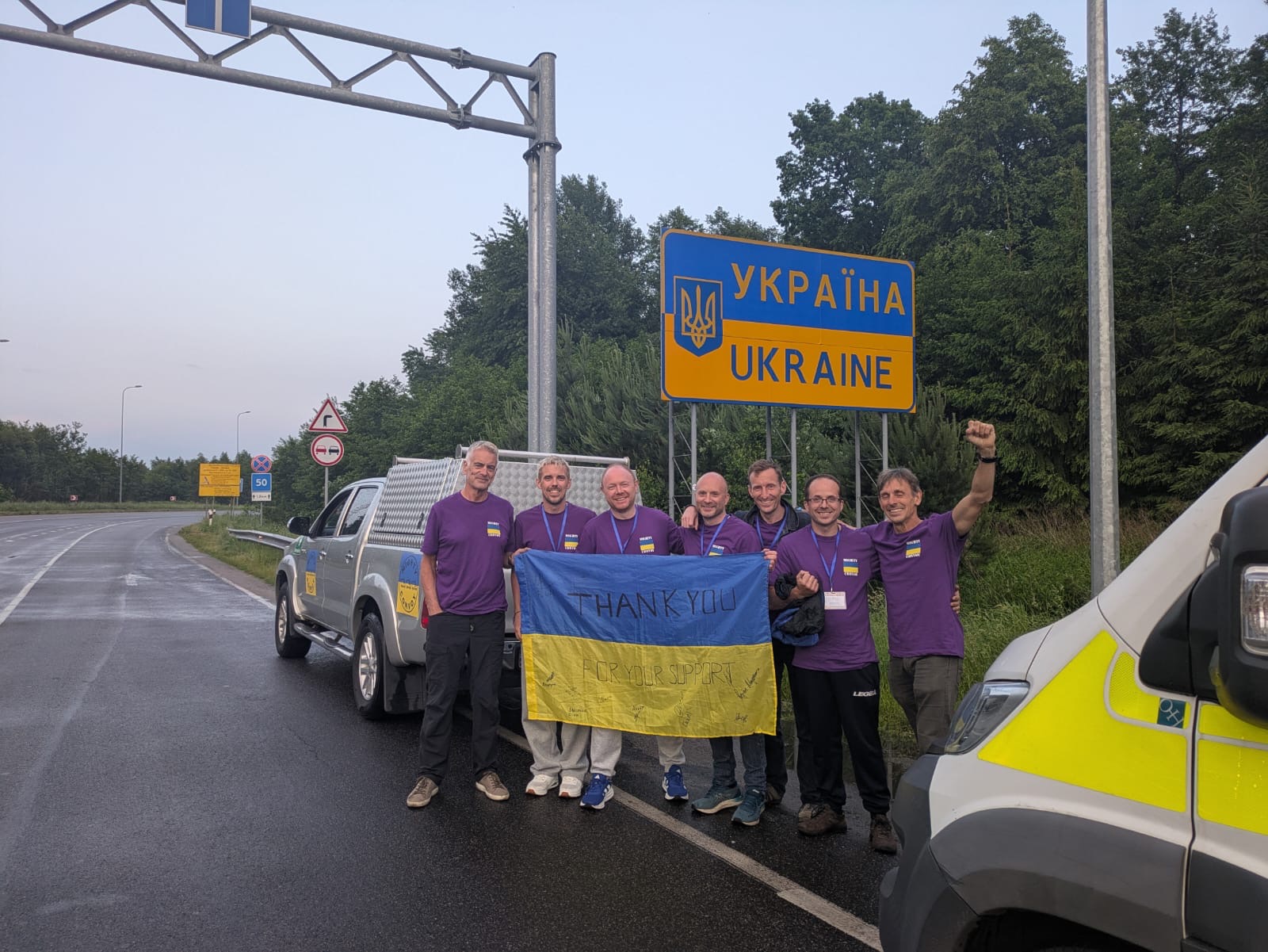
We’d like to thank everyone that made this journey possible.
After about 1200 miles and around 37 hours driving continuously in shifts - with a few hiccups on the way … and getting stopped by the Polish police (twice) - we made it to Lviv around 11pm Sunday night, just before curfew.
The first night was somewhat surreal.
When checking into the hotel we were shown the air raid shelter in the hotel basement. Our local guides had live data on aircraft and drones in the area, and warned us that we were in for a busy night - there were multiple drones detected over Kiev heading west, and submarine activity detected in the Black Sea (with the ability to fire cruise missiles). They have web services giving detailed information about local threat levels:
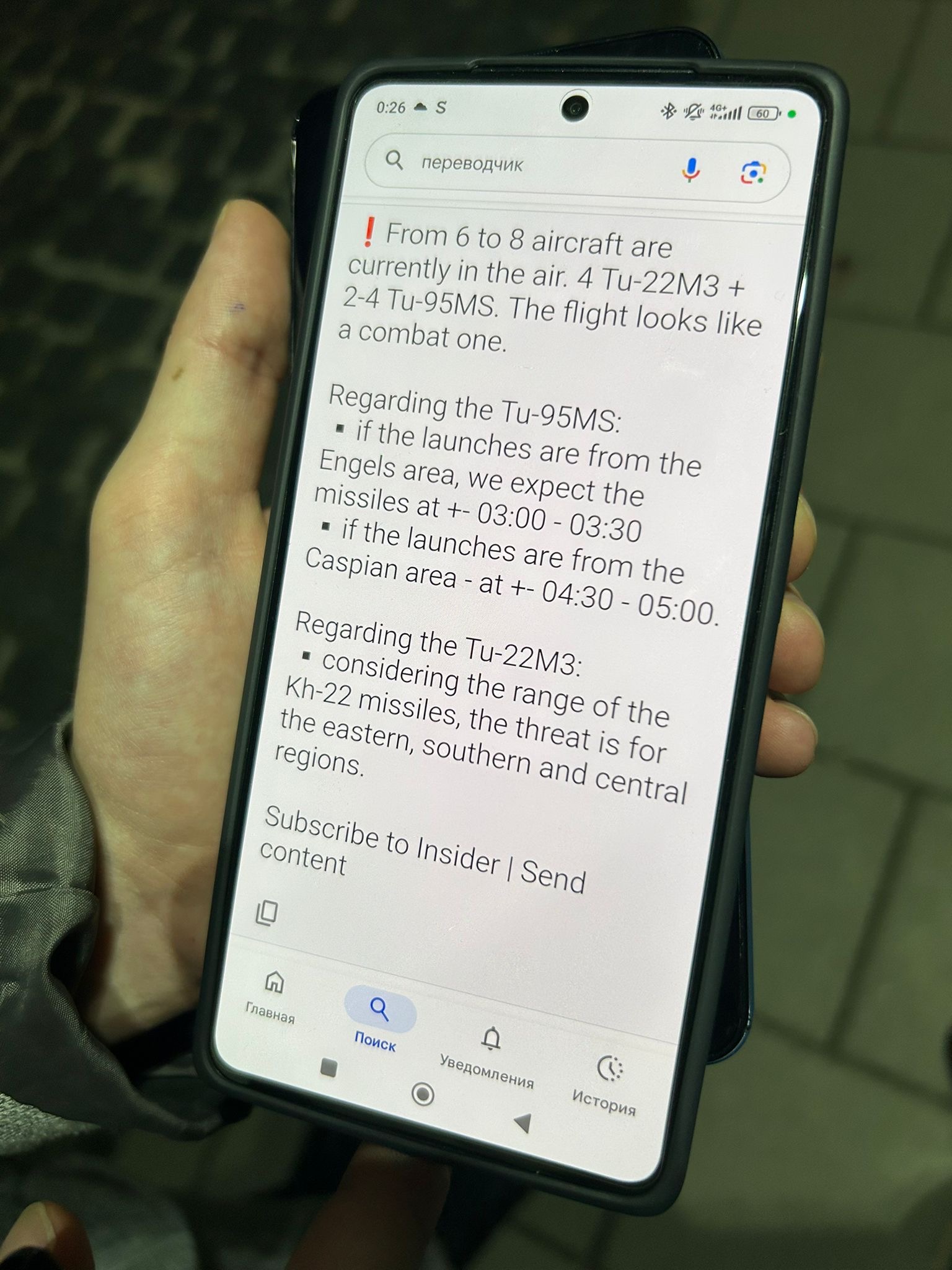
That first night we had 2 air raids - at around 3am and 5am, but I discovered this only on waking up and discovering WhatsApp messages from others in the group who had been woken by the sirens and headed to the shelter. I had slept blissfully through it all.
But at 9am there came another alert - a loud siren outside, just like you hear in footage of the Battle of Britain, with a vocal warning to find shelter from a system of speakers rigged up to buildings. Our local host texted to say "Please find a safe place. Russians may launch their ballistic missiles", followed ten minute later by: "The missiles have ceased to exist. There is no danger now."
This is an everyday occurrence even in a relatively western part of Ukraine, and we were very impressed with the stiff upper lip of the Ukrainians. They have a steely determination not to give in and a real sense of unity and strength of purpose as a society.
On Monday we spent time walking around the city.
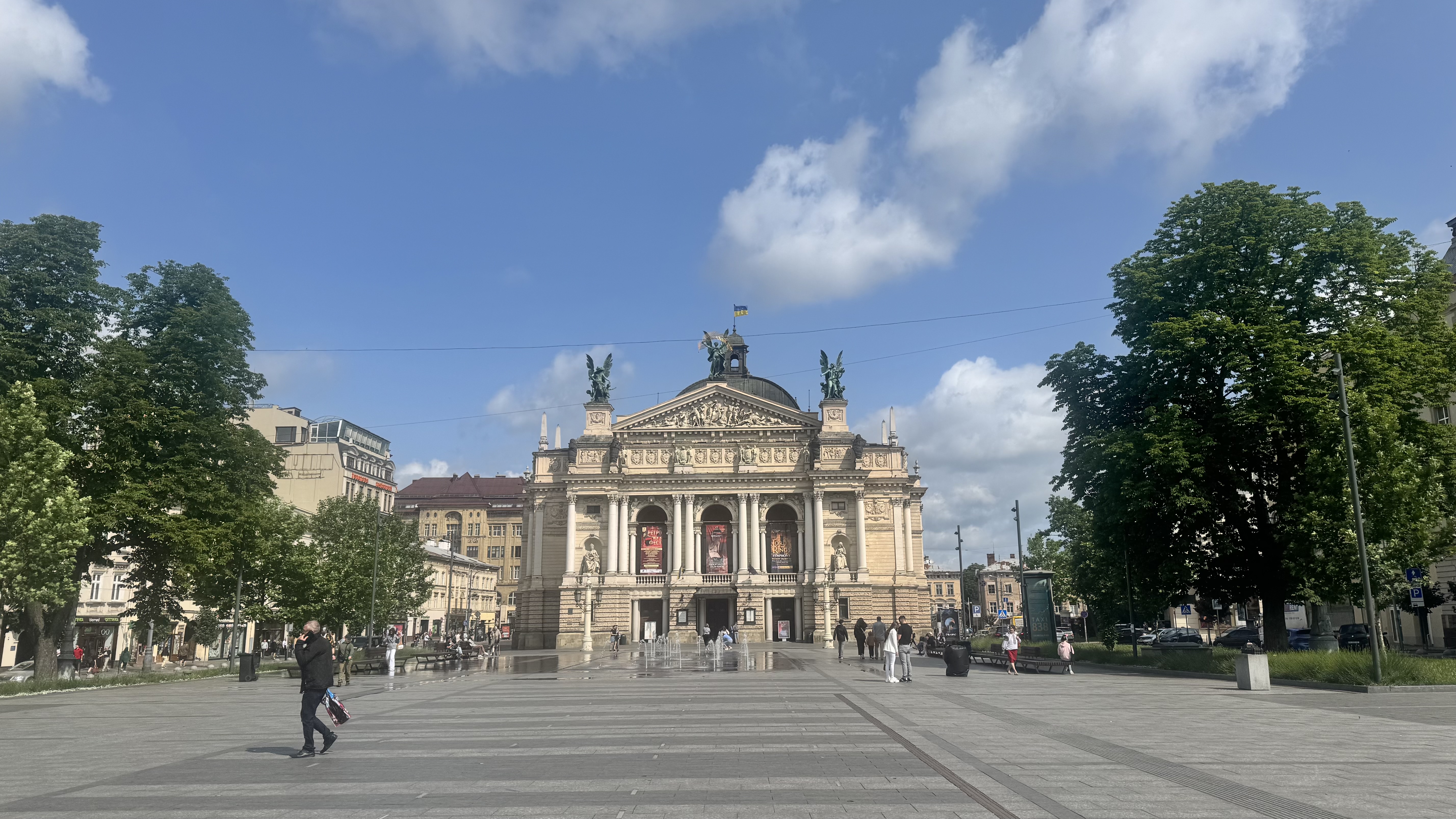
Lviv is a really beautiful city - much of it dating from the eighteenth and nineteenth centuries - and classically European . If you didn’t know you were in Ukraine, you could easily think you were in Paris, Venice, or Prague.
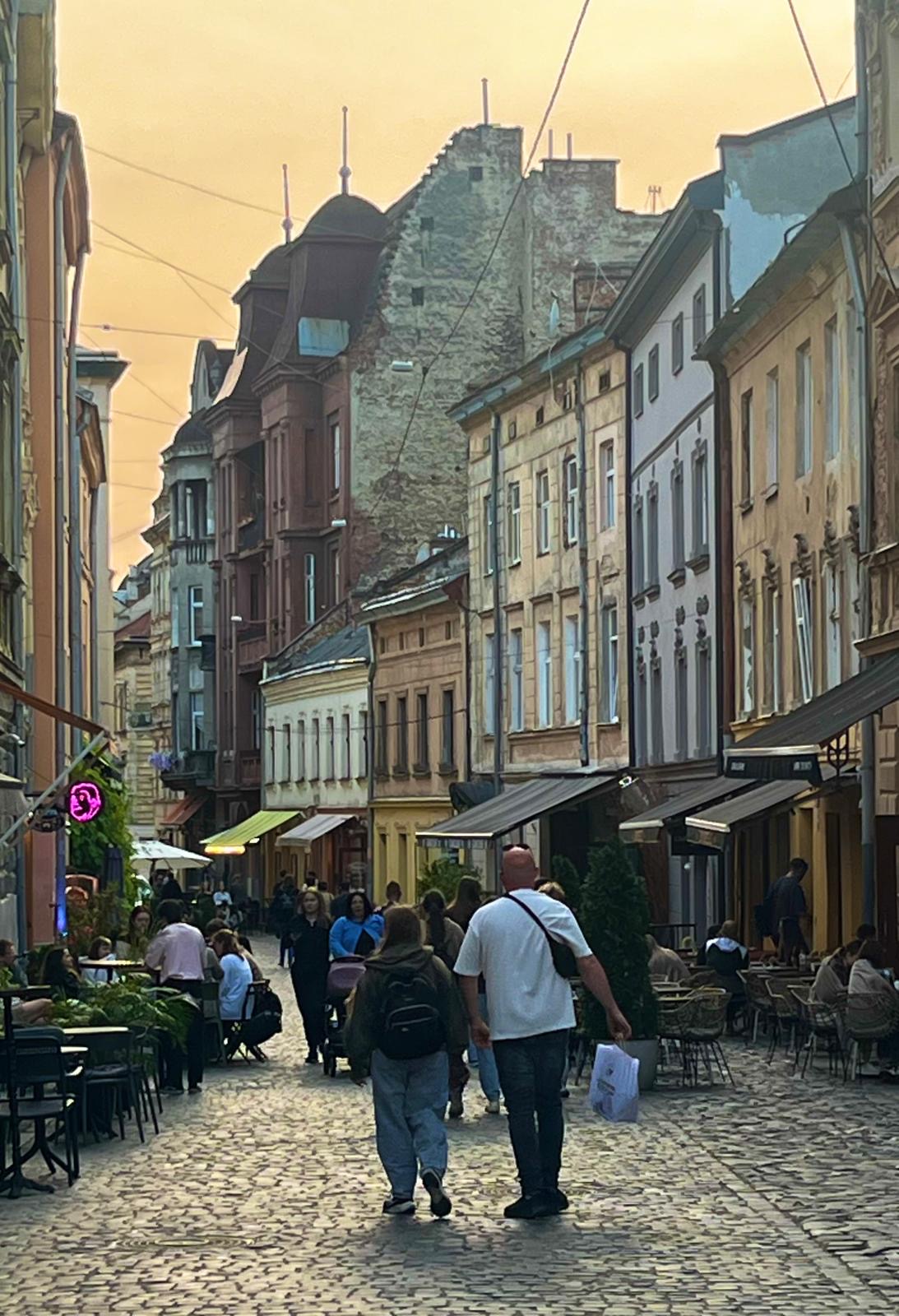
The churches (Russian Orthodox) were reopened after 1990 and are stunningly beautiful, with paintings and art across ceilings and walls as lovely as many in Italy or France. However, many have windows boarded or taped up to protect against blasts, and statues wrapped in plastic sheeting. Interestingly the churches were completely full - people even standing on the street outside due to lack of standing space.
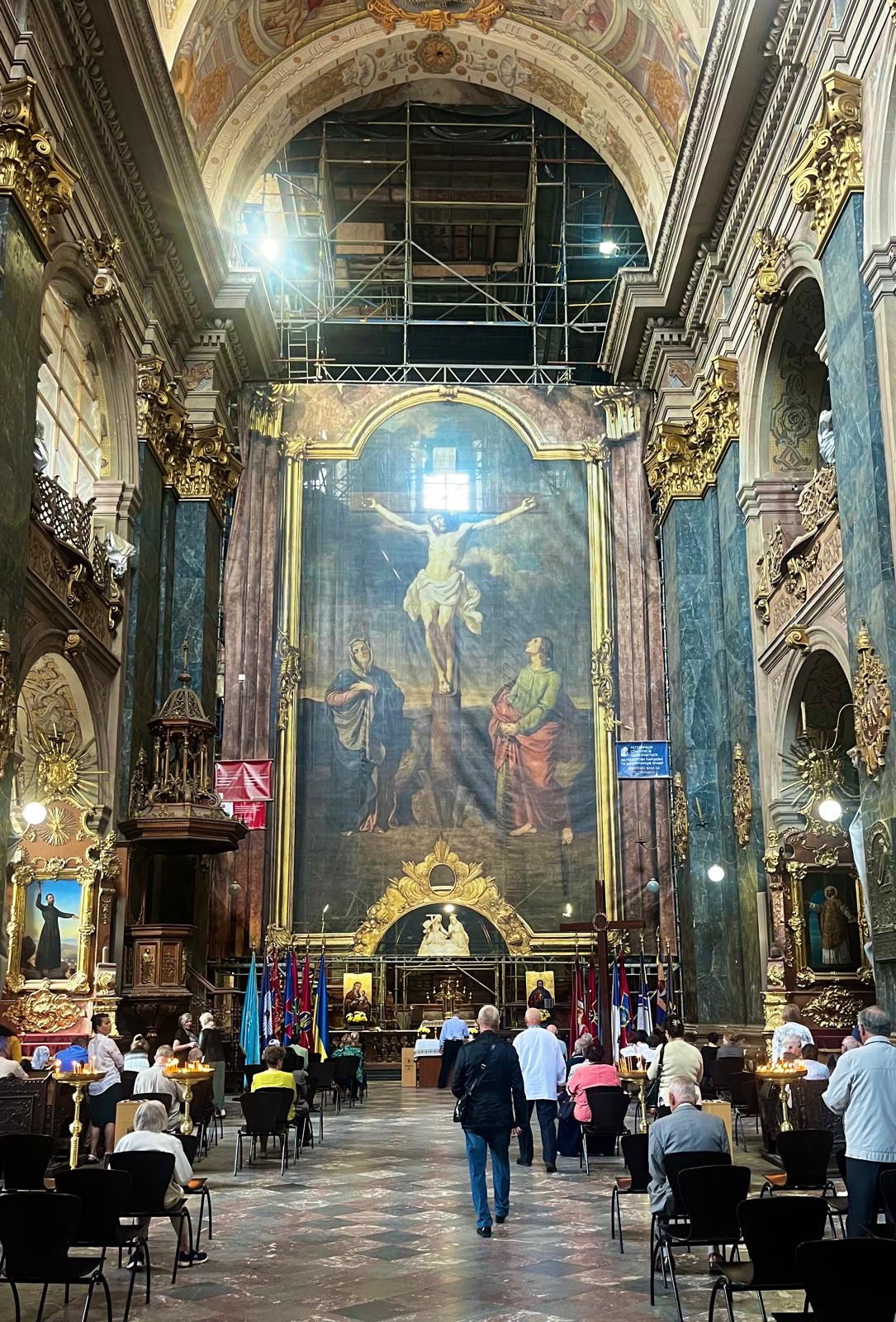
One thing we saw - which was incredibly poignant - was a wall of memorial with the photos of hundreds upon hundreds of men and women that had died in the conflict. It was haunting to see just how similar they were to us - ordinary people with jobs, families and friends - all thrown into the conflict. Even more moving was a wall of children that have lost their fathers in the war.
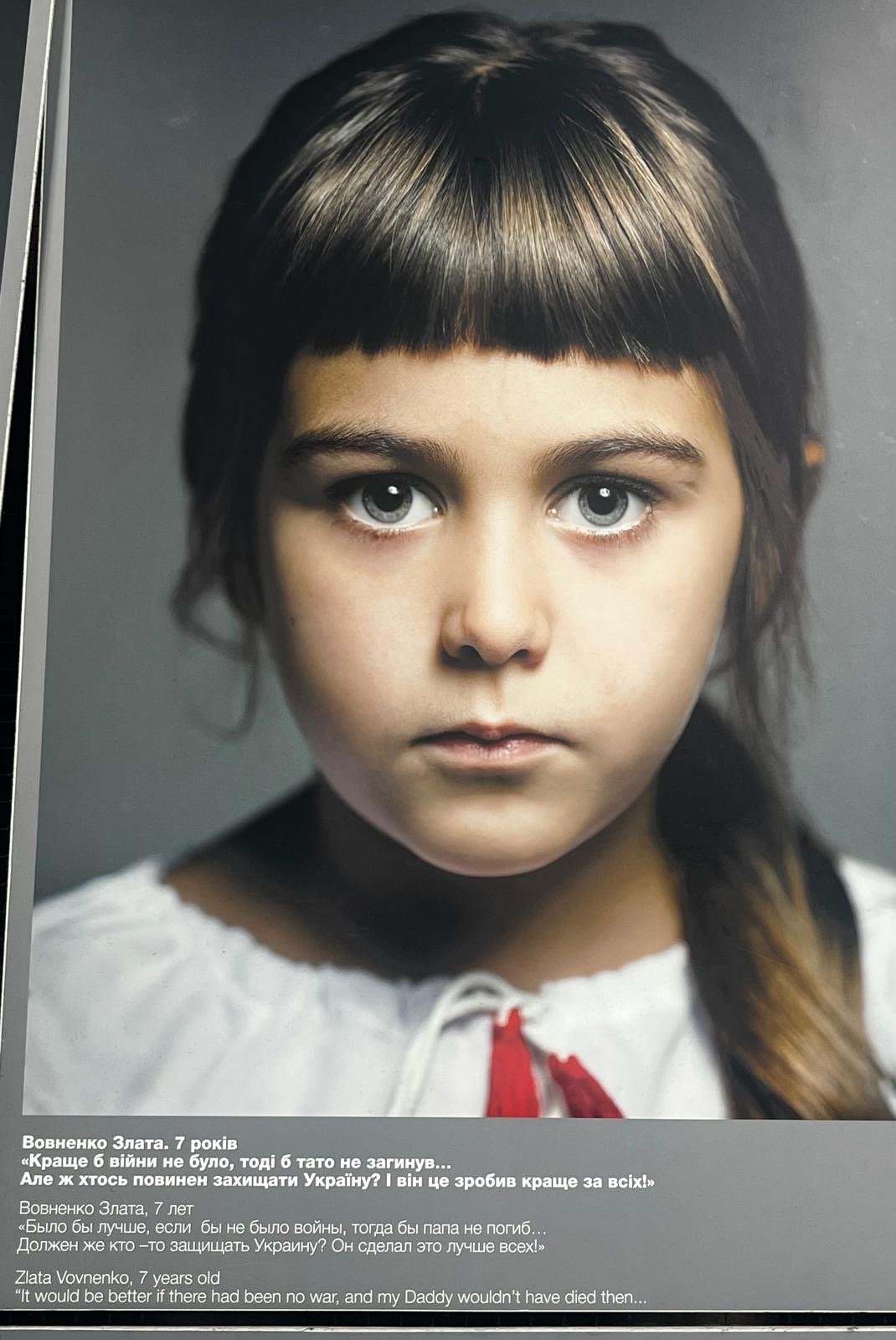
"It would have been better if there had been no war, and my daddy wouldn't have died then", says this little girl.
We then were taken on a tour of the local hospital, and met the director and some senior staff, as well as many wounded soldiers. We visited a surgical ward - bits modern, bits old and Soviet-looking - crammed full of men missing legs and arms. It was stuff you hear about on the news - a man who stepped on a landmine in Sumy, another who had been hit by a drone in Kursk - but horribly real life. We were shown the burns unit (all manner of terrible, pretty fresh blast injuries - Lviv is a major centre for plastic surgery), and the rehabilitation unit where men (sometimes with their wives and children with them) were learning to use wheelchairs and doing strengthening exercises with physios.
The trauma these men had suffered was terribly clear. Even more powerful was the intense care and pride the staff took in treating the injuries. One comment was that “even when I am tired, how could I do anything other than honour these men that have given everything“.
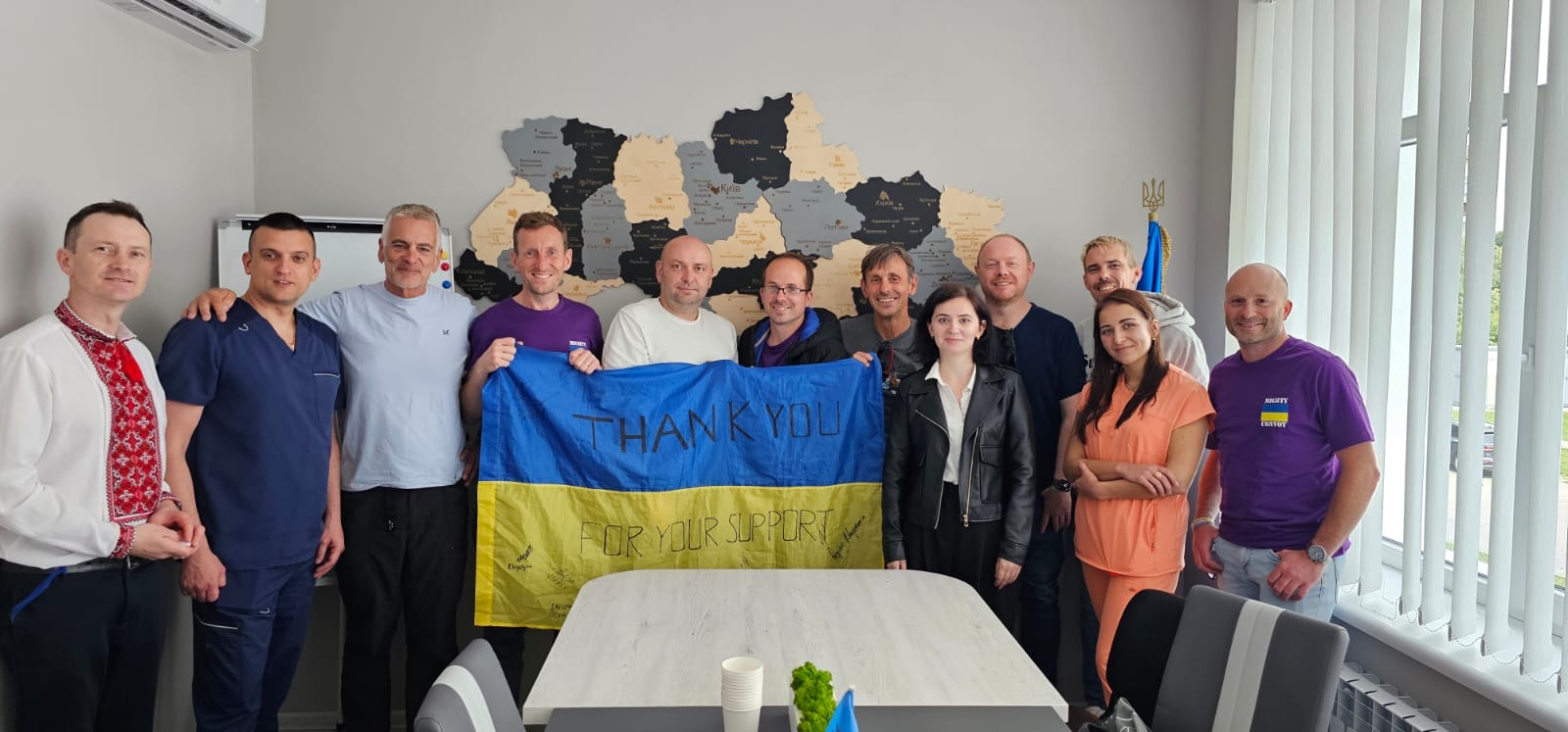
The need for donated equipment and supplies is huge. Much of the equipment we took was just simple every day consumables - syringes, bags and bandages. The donated ambulances and 4x4 are badly needed, ambulances to evacuate from field hospitals behind the lines to specialist centres like the one we were visiting in Lviv; 4x4s to run the gauntlet of Russians drones to extract wounded soldiers from the front line.
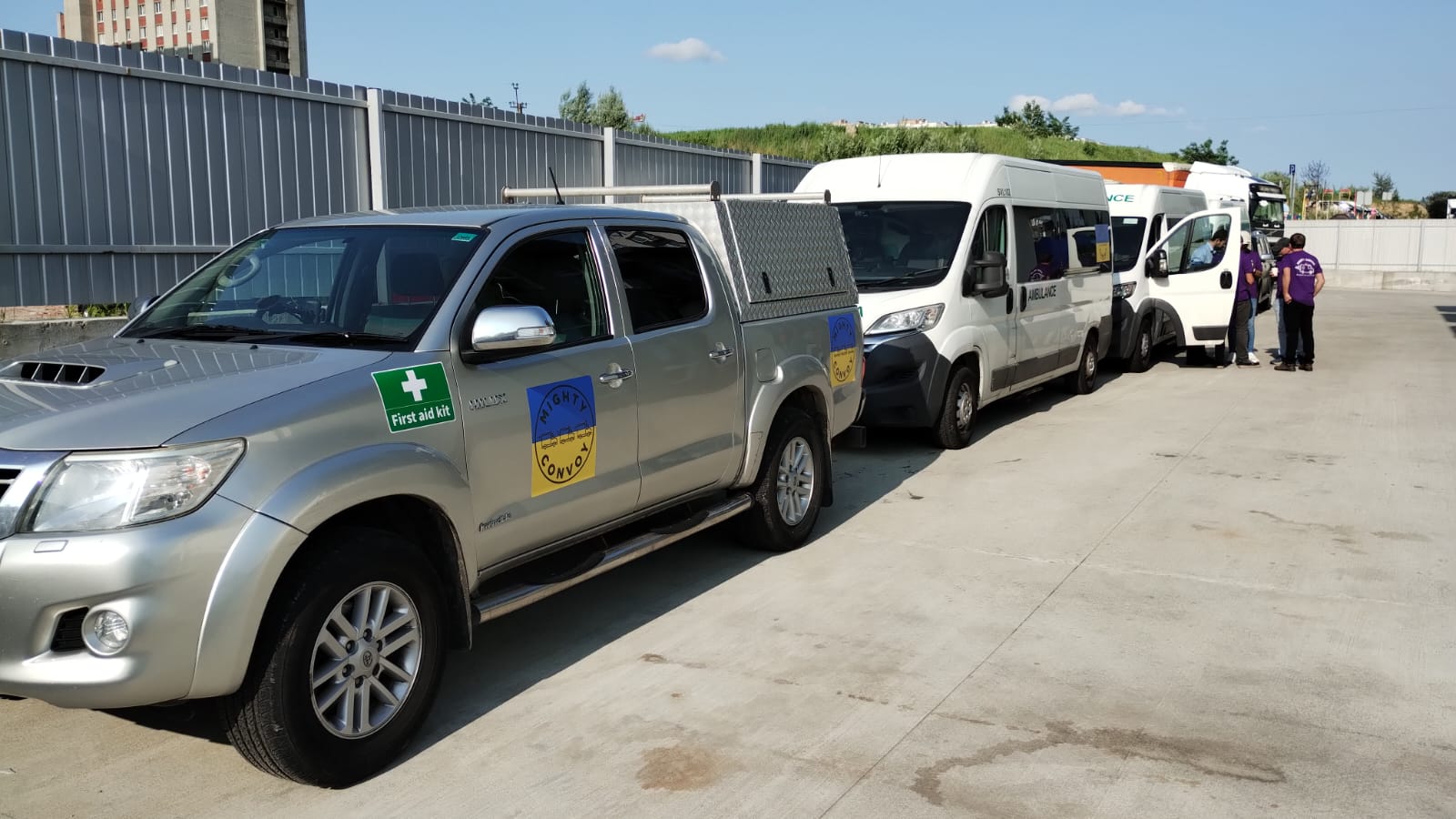
The supplies are distributed by CMAU, the Christian Medical Association of Ukraine. We visited their warehouse, and saw regimental badges donated from dozens of Ukrainian military units is gratitude for the equipment received.
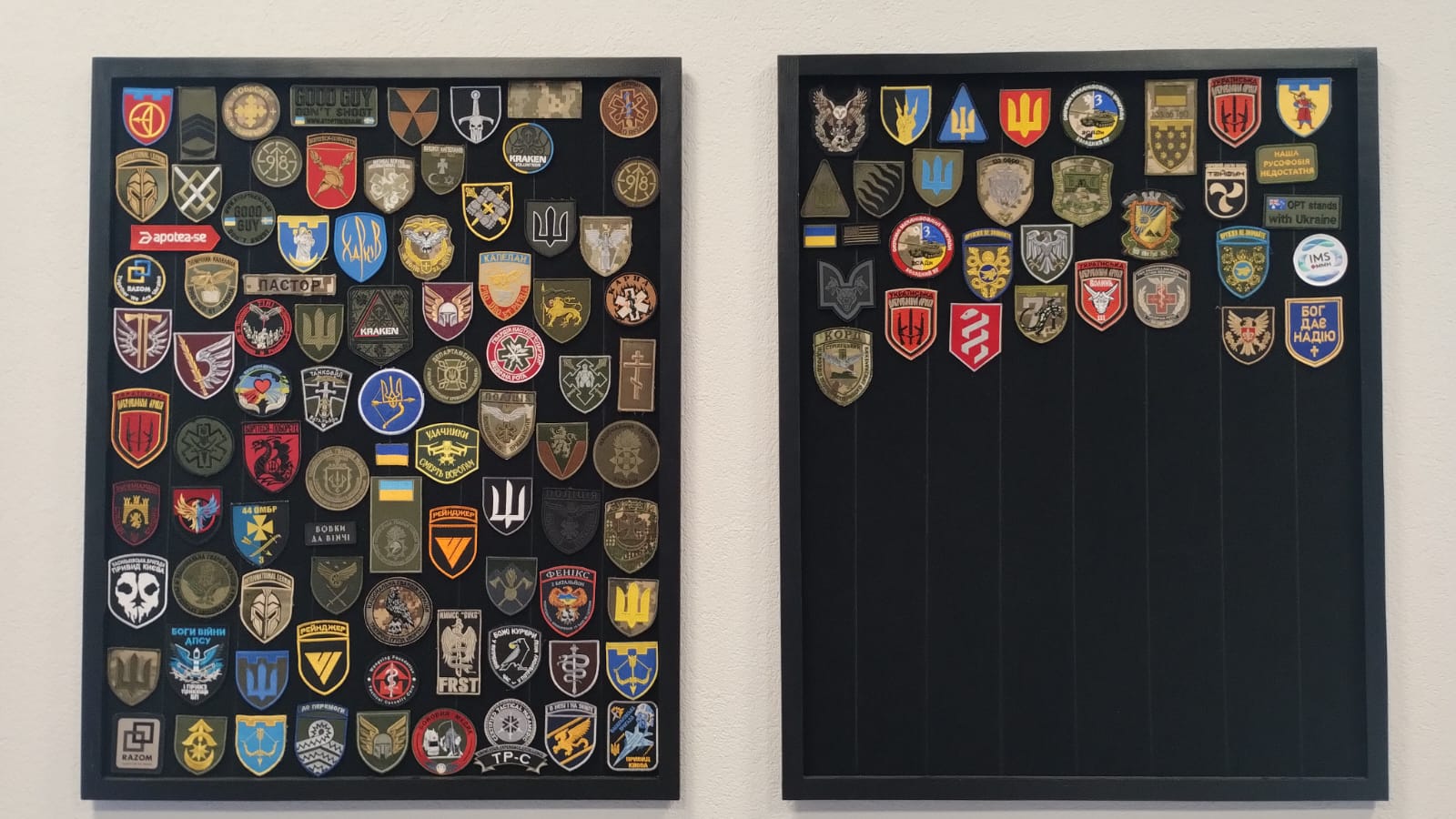
It was so inspiring to see a whole country united and working together in the midst of tragedy, although tragic to see the destruction and pointlessness of war. All this, because of one man's greed and vain ambition. So many people we met had lost someone, or had the uncertainty of a family member serving in the military. Our taxi driver shared a video of his son in a dripping wet trench on the front line, cheerfully digging out mud to form a drainage channel - sheer grit and determination to keep going.
After the hospital visit we went to a new cemetery in Lviv, which only a couple of years before had been an empty field. Each grave was decorated with Ukrainian and regimental flags, with pictures of the lost soldier, and mementoes left by the families - several being actively tended by relatives as we watched on.
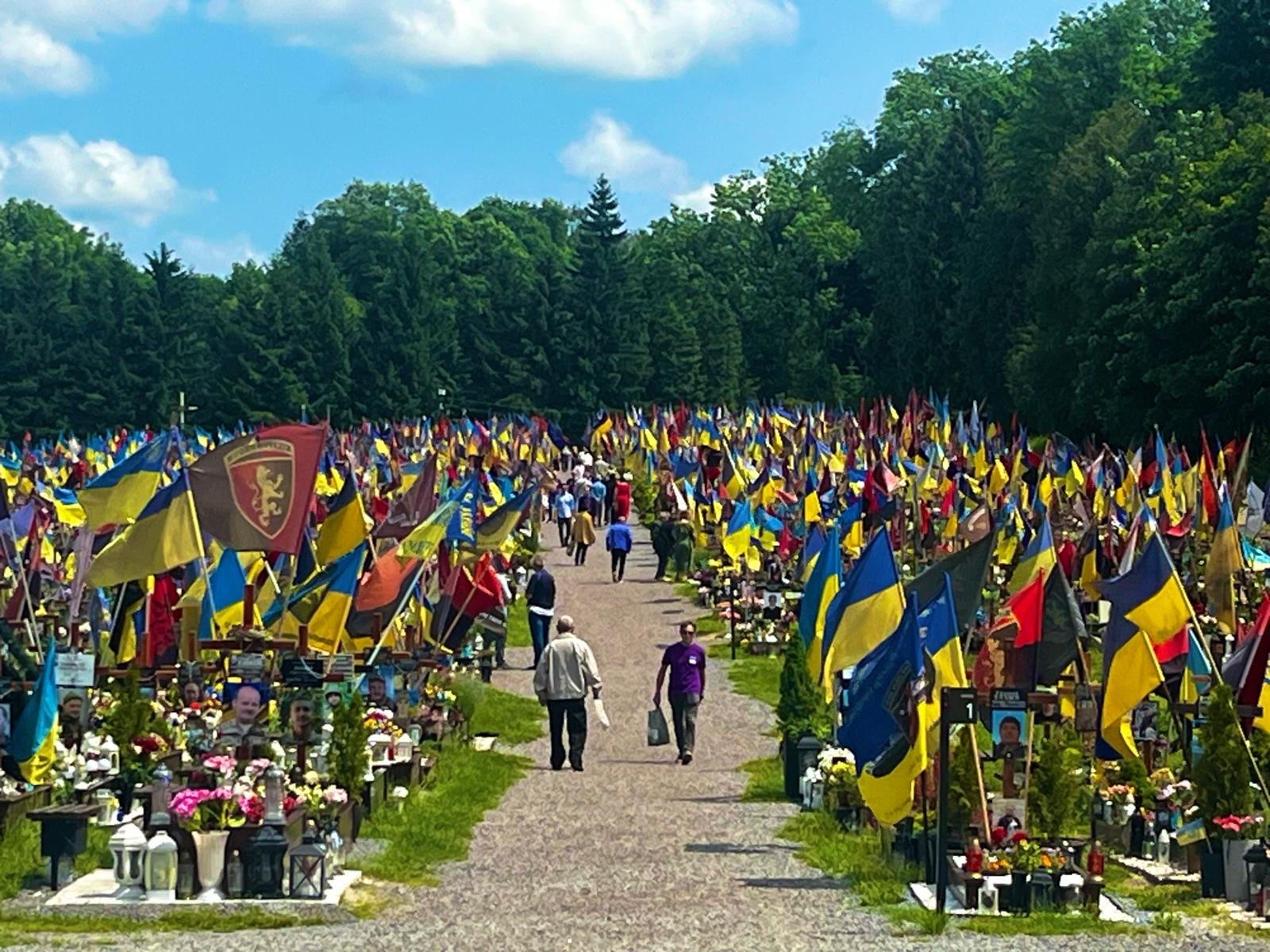
I found particularly sad a picture drawn by the son of one of the soldiers, showing his lost dad in a superhero costume.
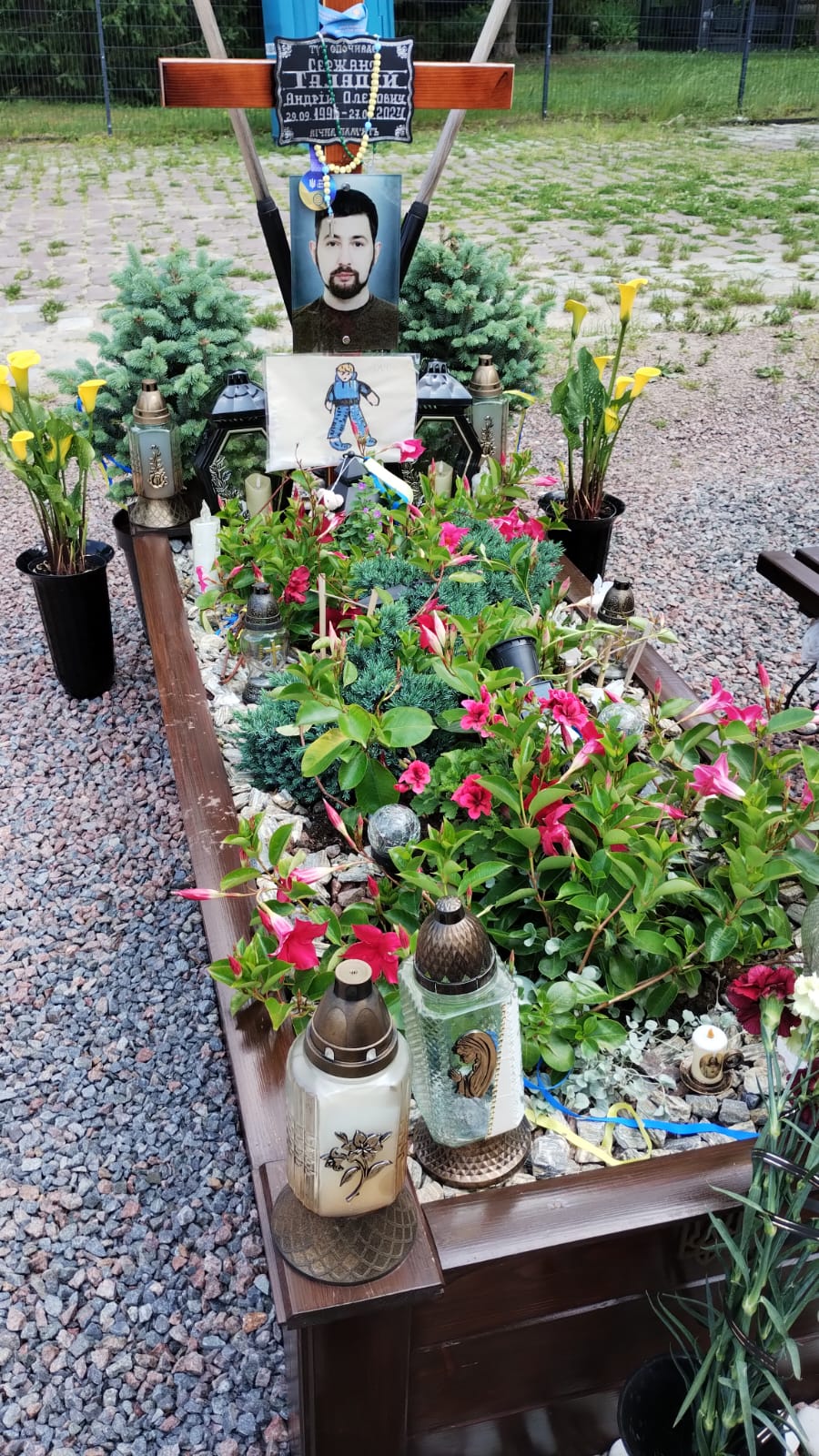
We finally flew back on Tuesday after a fortunately quiet night - we found out Kyiv had been relentlessly bombed with drones that night. Good to be home and safe.
Mighty Convoy has now done 15 missions to Ukraine, delivering over 65 vehicles and thousands of tonnes of aid.
Any further funds donated to this page will be continue to be forwarded to Mighty Convoy, and if you need any further information or would like to support further in any way please contact Mighty Convoy through
Thank you again so much for all your support - from us - and from our friends in Ukraine.

